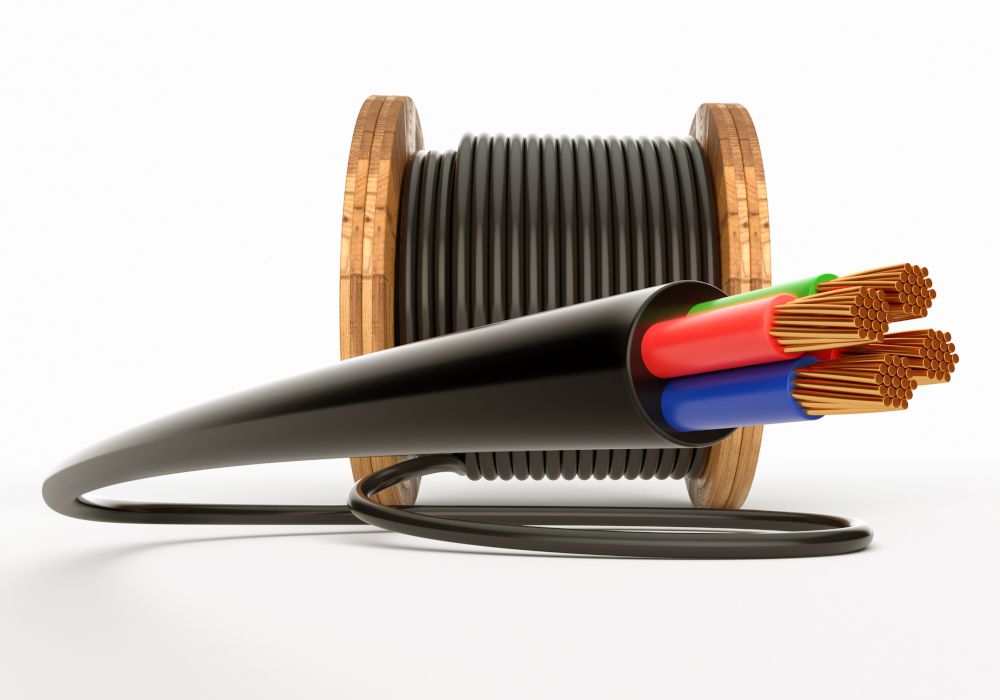How to Buy The Best Wires?
When you’re building or remodelling your home, hidden items like wires require careful thought. So, how can you go about buying a great wire? Here are a few factors to think about.

A great home relies on multiple factors - a great design layout, high-quality construction material, fantastic décor, and the ability to express yourself through the visual elements in your home. When you’re building or remodeling your home, you’re probably putting in a lot of thought while buying each and every little item.
However, there are some items that you may believe to be quite basic, thinking that they are so generic that they do not require careful consideration. Don’t fall into this trap! Even hidden items like wires require careful thought as there are many different features that can help ensure safety, a great performance, and more.
So, how can you go about buying a great wire? Here are a few factors to think about!
1. What Conducting Material is Used?
As the name suggests, the conducting material is the part of the wire that is responsible for making sure the electricity reaches the appliance from its source. Wires can be made with two conductor types, aluminum and copper, with the latter being a superior material. Wires that use electrolytic grade copper offer 100% connectivity, which means that there is no resistance. On the other hand, if you require a wire that can carry high-voltage electricity over a long distance, then you might want to pick wires with aluminum conductors. This is mainly because these wires work out to be more economical.
Also Read:
- Is There a Right Way to Pick a Fan?
- How to Buy the Best Fan Regulators?
- How to Buy the Right LED Lights for Your Home Office?
- How to Buy the Perfect Microwave Oven for Your Modular Kitchen?
- How to Pick the Right Dishwasher for Your Modular Kitchen?
2. What is the Current Carrying Capacity?
The current carrying capacity of a wire refers to the amount of electricity that the wire can conduct without any damage being caused. If a wire with a low current carrying capacity is used for heavy-load appliances that require a higher current, the insulation of the wire will melt, leading to electrical hazards.
Just as an example, consider the different areas of your home. Your living room is more likely to have low-load electrical items, such as lights and fans. A wire with a smaller nominal area of conduction (anywhere from 0.75-mm to 1.5-mm) would be suitable as it would have a current capacity that’s suitable for lights and fans. On the other hand, if you’re thinking about your modular kitchen and its appliances (dishwashers, ovens, microwaves, and so on), you might need a thicker wire with a higher current carrying capacity.
3. What is the Insulation Made Of?
The insulation of a wire is one of the most important things that you can consider. This is because, as you know, electricity is very dangerous. Exposure to the same can lead to injuries, and can even be fatal. In order to ensure that consumers are protected, manufacturers ensure that wires come with a thick insulation that does not conduct electricity. Insulation can be made of a variety of material such as PVC (which is also flame retardant) and FR PVC.
A Quick Tip for Homeowners!
When you are gearing up to buy wires online, first have a chat with your builder and his electrician. Try to understand the layout of your home, the utility of each room, and the kinds of appliances you will be fitting in each room. Then, jot down the types of wires you’ll need so that you don’t end up buying the wrong ones!
At Hippo Homes, we want you to never lose a night’s sleep when it comes to your family’s safety. One great way to ensure the same is by exploring our wide range of residential and commercial-grade wires that are sourced from the most reliable manufacturers in India. What’s more, we offer them at wholesale prices so that you never have to compromise on quality and your budget!
Watch Video: